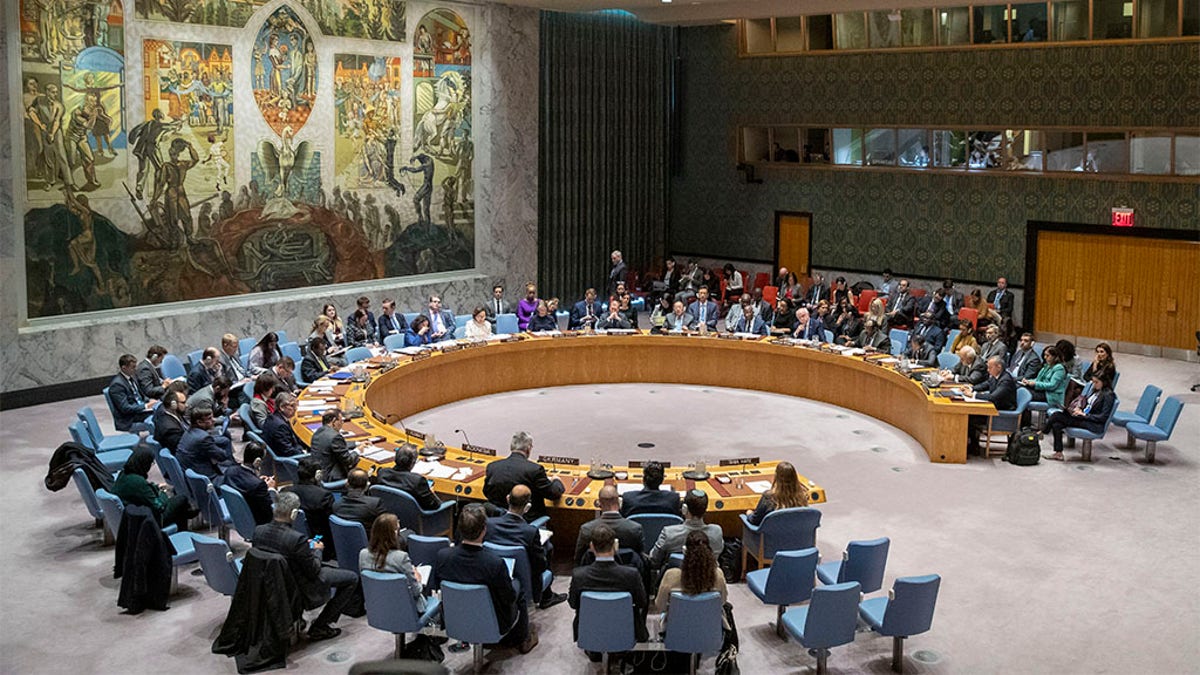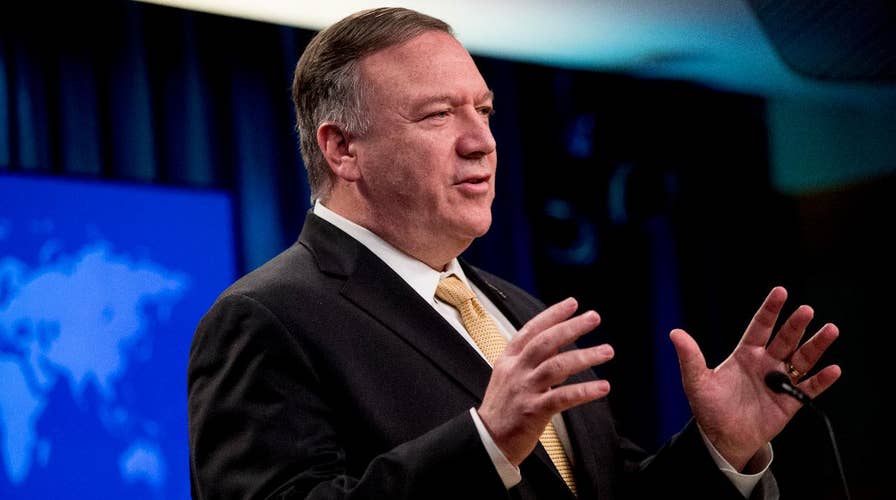Secretary of State Pompeo announces US is softening position on Israeli settlements in occupied West Bank
The move will likely anger Palestinians and put the U.S. at odds with other nations working to end the conflict; reaction from Amy Jaffe, senior fellow at the Council on Foreign Relations.
United Nations Security Council members decried a United States policy shift on Israeli settlements on Wednesday during a meeting where they discussed recent developments in the Middle East, including Secretary of State Mike Pompeo’s announcement two days before.
Council members said they oppose Pompeo's announcement that the U.S. no longer considers Israeli settlements a violation of international law.
The members stressed that their stance is that the settlements are illegal and undermine a potential two-state solution to the Israeli-Palestinian conflict.
TRUMP ADMINISTRATION EASES US STANCE TOWARD ISRAELI SETTLEMENTS IN WEST BANK
At the Security Council briefing on the Middle East, British Ambassador to the U.N. Karen Pierce said: “I wanted to stress the U.K. position on settlements hasn’t changed. They are illegal under international law. They present an obstacle to peace. They threaten the physical ability of a two-state solution.”
In a statement sent to Fox News on Monday following Pompeo’s announcement, Vice President of the European Commission Federica Mogherini said, “The European Union's position on Israeli settlement policy in the occupied Palestinian territory is clear and remains unchanged: all settlement activity is illegal under international law and it erodes the viability of the two-state solution and the prospects for a lasting peace.”
During the meeting on Wednesday, E.U. leaders reiterated that position with a joint statement on behalf of the U.K., Belgium, France, Germany and Poland read by Pierce.
“We call on Israel to end all settlement activity, in line with its obligations as an occupying power,” Pierce read.
The statement went on to say, “We will continue to support a resumption of a meaningful process towards a negotiated two-state solution, the only realistic and viable way to fulfil the legitimate aspirations of both parties.”

The U.N. Security Council holds a meeting on the Middle East, including the Palestinian question, Wednesday, Nov. 20, 2019 at United Nations headquarters. (AP Photo/Mary Altaffer)
Israeli U.N. Ambassador Danny Danon backed the U.S. action, saying it “rights a historical wrong.” Israel is not a member of the Security Council.
Danon said on Wednesday that he encourages his colleagues from the E.U. “to actually read the statement, look at the content of it, before automatically bashing it.”
“What they are doing [is], they are not supporting the peace process. They think they are helping the Palestinians, but they are doing exactly the opposite. They should tell the Palestinians to sit with Israelis [and] negotiate with them,” Danon said. “What the EU is trying to do is to force the solution to the conflict without negotiations and by doing that, they are actually delaying the negotiations.”
Acting U.S. Deputy Representative to the U.N., Ambassador Cherith Norman Chalet, said, “The United States remains committed to the cause of peace, and Monday’s announcement does not alter this fact.”
COEXISTENCE IN A 'DANGER' ZONE: AN INSIDE LOOK AT ISRAELI SETTLEMENTS IN THE WEST BANK
“We continue to believe that discussion between the parties is the path to finding a solution that works for both sides and promotes and protects the welfare of Palestinians and Israelis alike,” she said. “But just as we are committed to the cause of peace, we are committed to Israel and its fair treatment at the United Nations.”
For his part, Palestinian Ambassador to the U.N. Riyad Mansour criticized the U.S. for softening its position on Israeli settlements.
“It will only affect the image and credibility of the U.S., or what is left of it,” he added.
Israel captured the West Bank and east Jerusalem in the 1967 Mideast war and quickly began settling the newly conquered territory.
Today, some 700,000 Israelis live in the two areas, which are both claimed by the Palestinians for their state. After the war, it immediately annexed east Jerusalem, home to the holy city’s most important religious sites, in the move that is not internationally recognized.
But Israel has never annexed the West Bank, even as it has dotted the territory with scores of settlements and tiny settlement outposts. While claiming the fate of the settlements is a subject for negotiations, it has steadily expanded them.
Some major settlements have over 30,000 residents, resembling small cities and serving as suburbs of Jerusalem and Tel Aviv.
CLICK HERE TO GET THE FOX NEWS APP
On Wednesday, Mansour Al-Otaibi, Kuwait’s Ambassador, said 14 council members agreed on a press statement saying settlements are illegal and undermine a two-state solution and a 2016 council resolution. However, he said one country objected — a reference to the United States.
Fox News' Ben Evansky and The Associated Press contributed to this report.
